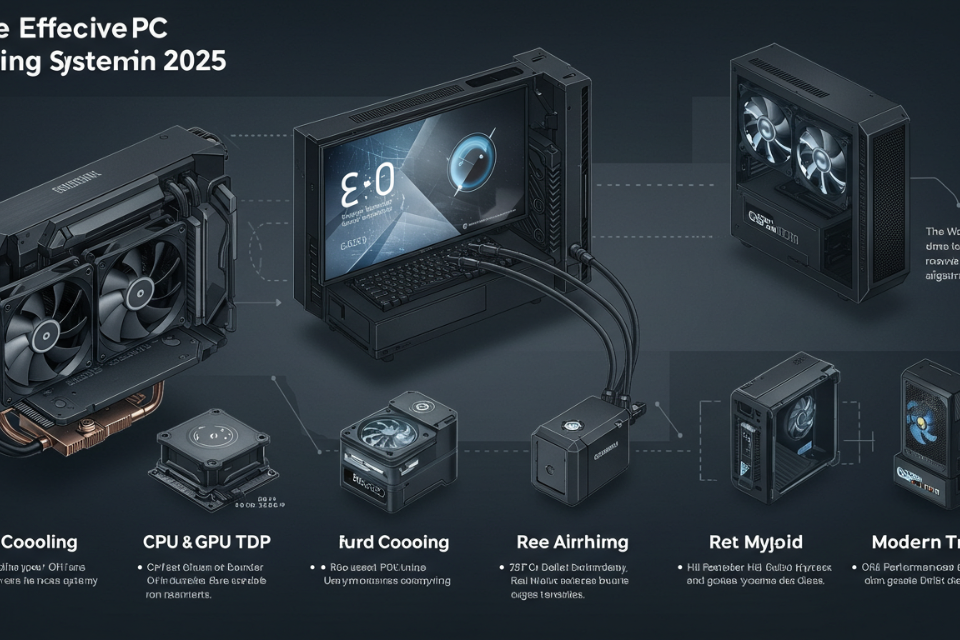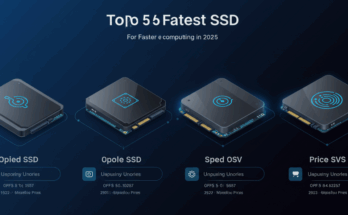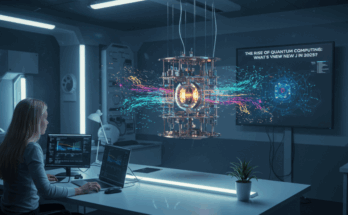Choosing the right PC cooling system can significantly impact your computer’s performance, lifespan, and noise levels. With so many options available, from air coolers to liquid cooling systems, it can be overwhelming to decide what’s best for your needs. This guide will help you navigate the world of PC cooling and select the perfect system for your build in 2025.
Understanding Your Cooling Needs
Before diving into specific cooling solutions, you must first assess your system’s requirements. Factors to consider include the CPU and GPU you’re using, the case’s airflow, and your ambient room temperature. High-end CPUs and GPUs, especially those overclocked, generate significantly more heat and demand more robust cooling solutions. Consider checking out our guide on CPU and GPU thermal limits to better understand your specific needs.
Air Cooling: The Basics
Air cooling remains a popular and effective choice, especially for budget-conscious builders or those seeking simplicity. A good air cooler uses a heatsink and fan to dissipate heat. Look for coolers with high TDP (Thermal Design Power) ratings, which indicate their cooling capacity. We explore the best air coolers of 2025 here.

Liquid Cooling: A Deeper Dive
Liquid cooling systems, often called AIOs (All-in-One) or custom loops, offer superior cooling performance compared to air coolers, particularly for high-end components. AIOs are pre-filled and easier to install, while custom loops offer greater flexibility and customization but require more technical expertise. Read more about AIO vs. Custom Loop systems.
Case Airflow: A Critical Factor
Your PC case’s design and airflow significantly impact the effectiveness of your cooling system. Cases with good airflow allow for efficient heat dissipation, while poorly designed cases can restrict airflow and lead to overheating. Consider the number and placement of fans, as well as the case’s overall ventilation. For more details, see our guide on improving case airflow.
Noise Levels: Balancing Performance and Quiet
While performance is crucial, noise levels are also an important consideration. Some cooling solutions can be quite loud, particularly under heavy load. When choosing a cooling system, check reviews and specifications for noise levels (often measured in decibels). Consider investing in quieter fans if noise is a major concern.
Choosing the Right Fan Curves
Fan curves control the speed of your fans based on temperature. Properly configured fan curves can optimize cooling while minimizing noise. Most motherboard BIOS or software utilities allow you to customize your fan curves. Learning to manage your fan curves effectively is crucial to optimal cooling and a quiet system. Check out this article for tips on optimizing fan curves.
Overclocking Considerations
If you plan on overclocking your CPU or GPU, you’ll need a more robust cooling solution. Overclocking increases heat generation, requiring a cooler with higher TDP and better heat dissipation capabilities. Learn more about overclocking safely.
Conclusion
Selecting the right PC cooling system involves considering various factors. By carefully assessing your needs and researching different options, you can ensure your PC stays cool, quiet, and performs at its best. Remember to consider your budget, the components you’re using, and your desired noise levels. For a deeper understanding of thermal paste application, check out this resource.
Frequently Asked Questions
What is the difference between air and liquid cooling? Air cooling uses a heatsink and fan to dissipate heat, while liquid cooling uses a liquid coolant to transfer heat away from the components.
How do I choose the right size CPU cooler? Ensure the cooler is compatible with your CPU socket and has sufficient TDP to handle your CPU’s heat output.
Is it necessary to use thermal paste? Yes, thermal paste is essential for optimal heat transfer between the CPU/GPU and the cooler.
How often should I clean my PC cooling system? Regular cleaning (every 6-12 months) is recommended to remove dust and maintain optimal performance.
What are the signs of an overheating PC? Overheating can manifest as system instability, crashes, high temperatures reported in monitoring software, or unusually loud fans.



